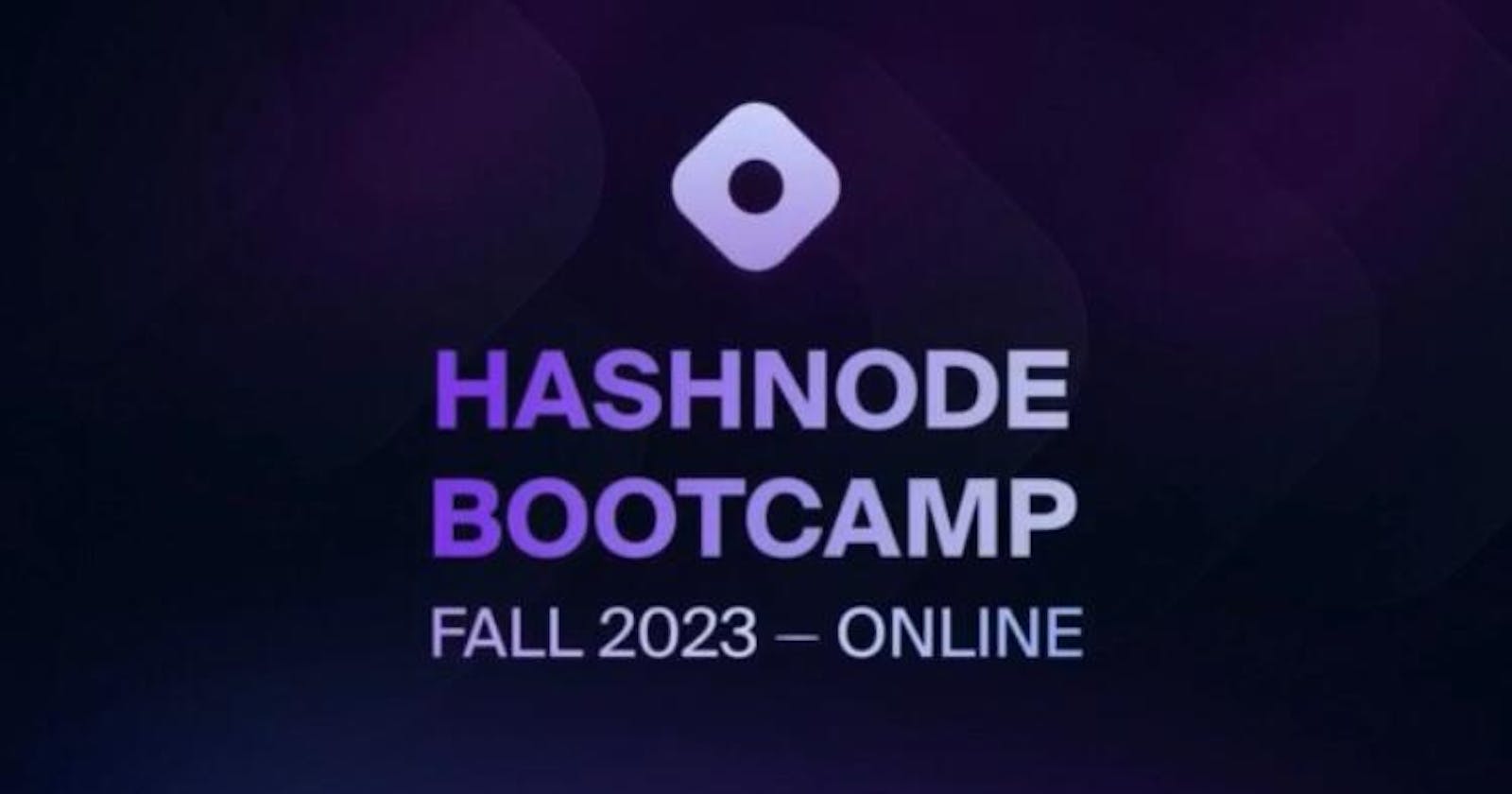Inside the Hashnode Bootcamp Fall 2023: A Personal Account of Growth and Learning.
This article contains my personal experience at the Hashnode Bootcamp, the valuable lessons I learned and the sessions I enjoyed the most.
The just concluded Hashnode Bootcamp fall 2023 has been insightful, knowledge-filled, interactive and super fun! The Speakers took time from their busy schedules to grace the occasion and speak to us on different topics. Daniela Passos - I like to call her Host with the most - did a beautiful job hosting. She ensured everyone was carried along and that the speakers answered most of the questions. Of course, she helped us have fun while learning.
This was my first time attending the Hashnode BootCamp, and I was so excited and pumped for it. I did a mental count down to the start of the event, so when the day finally came, I grabbed my notes and pen, ready to take in all the knowledge I could get.
I will share all I've learned in my favourite sessions in this article, so get your notes, save and share this post, and tie your shoelace for a walk through my Hashnode Bootcamp 2023 experience.
Day 1.
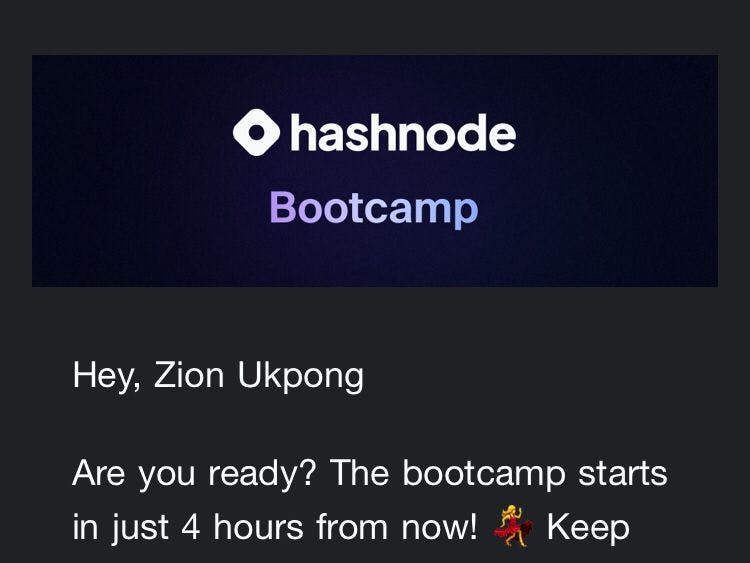
We had four main sessions on the first day, aside from the Welcome Address by Daniela Passos. Speakers took the four other sessions: Jamie Barton, Rafael Hernandez, Rajat Kapoor and Sabrina Aquino.
The first session, Get Started with GraphQL, was taken by Jamie Barton, and the second, Building Connections in Open Source: Unlocking Opportunities, was by Rafael D. Hernandez. The third and fourth were Leverage Hashnode's AI Editor as a Developer and To All Junior Devs Out There - Building Universes, Not Just Code, taken by Rajat Kapoor and Sabrina Aquino, respectively.
All four sessions were terrific, but two intrigued me the most: the ones taken by Rafael and Sabrina.
Rafael talked about Building connections in open-source and unlocking opportunities while at it. He said
Open Source is an integral part of our development journey because it's not just about coding and contributing but an opportunity to connect and build long-lasting bonds with people in different niches.
We should engage regularly with contributor content and give valuable feedback.
We should also learn to leverage social media and platforms. Share your projects and content, and engage with experts.
Sabrina's talk was specifically for newbies and junior developers; many loved her session. She was straightforward and didn't mince words. She said that junior developers should
Avoid click baits like 'Learn JavaScript in 1hr' etc.. they aren't beneficial and end up confusing you on the subject matter.
Learning takes time, so find and stick to a path that interests you.
Don't try to be everything at once; you can't possibly learn all the tech stacks.
Day 2.

Day 2 started with a lot of excitement and energy. Five speakers spoke on different topics that day. The first and second sessions were taken by flo merian and Ayodele Samuel Adebayo. They talked about Trunk-based management and other principles to build a developer community and How to use Rix as a developer, Respectively.
Eric Tang, Camila Ramos and Brandon Strittmatter took the third, fourth and fifth sessions. Their topic was Fireside Chat, Building a Personal Brand and Designing Better Developer Experiences.
My favourite was Camila's session, Building a Personal Brand. Here's what I learned:
Always be your authentic self.
Have a set style of delivering your content; let people easily recognise content created by you.
Know your audience and tailor your content to meet the specific audience needs.
Day 3.
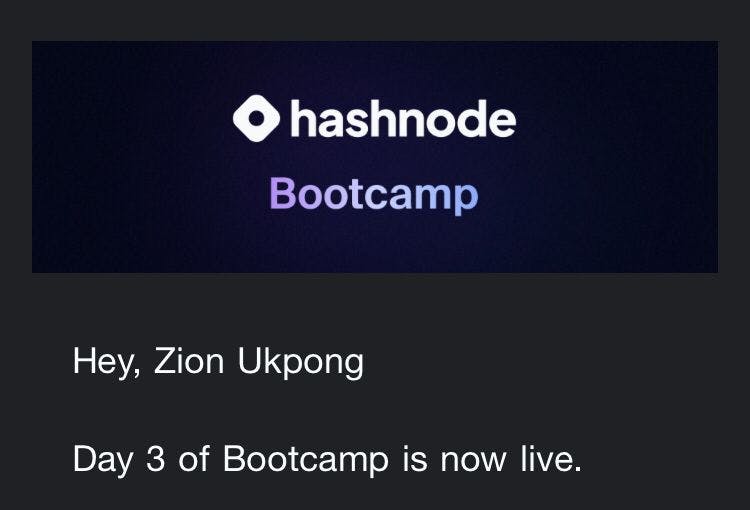
Day 3 came, and we were halfway through the Bootcamp experience. We had four speakers: Dan Eskow, Brayden Wilmoth, YK Dojo and Haimantika Mitra and I especially loved the last two sessions.
Dan Eskow took the topic Finding Job Opportunities in Tech, Brayden Wilmoth took the topic Building your MVP, Yk Dojo took the topic Build in Public and Build your Online Presence: The Ultimate Guide and lastly, my favourite, Haimantika Mitra took the topic The ABCs of Technical Writing.
YK Dojo's session was a game-changer. Here are some excerpts from his session:
He emphasised the importance of two key factors: Energy (both physical and mental) and consistency in your development journey.
Make sure to sleep well, eat well and get adequate rest. He said people always say this, but they never really follow it. He recommended that we prioritise these three.
He advised going in-depth on content rather than breadth, i.e. unnecessarily long-range when delivering your content.
Haimantika's Session was on the Fundamentals of Technical Writing. She defined it as the act of presenting complex information clearly and understandably. She mentioned some must-haves for every technical document, and they are:
Clarity: The primary purpose of technical writing/documentation is to solve problems and break down complex topics, so if your technical document isn't clear, it defeats the purpose of writing it.
Conciseness: Your technical document shouldn't be wordy but should go straight to the point.
Visual aids: Some people understand things better when illustrations are included, so try to ensure you incorporate visual aids into your technical document.
Accuracy: Make sure to do proper research before creating a technical document. Technical articles are meant to solve problems, not confuse them.
Consistency: Don't divert from the main topic.
Organisation: Your technical document should be organised appropriately. You can divide your paper into sections for readability and use a table of contents where necessary.
She included tips to write better. Here's a screenshot.
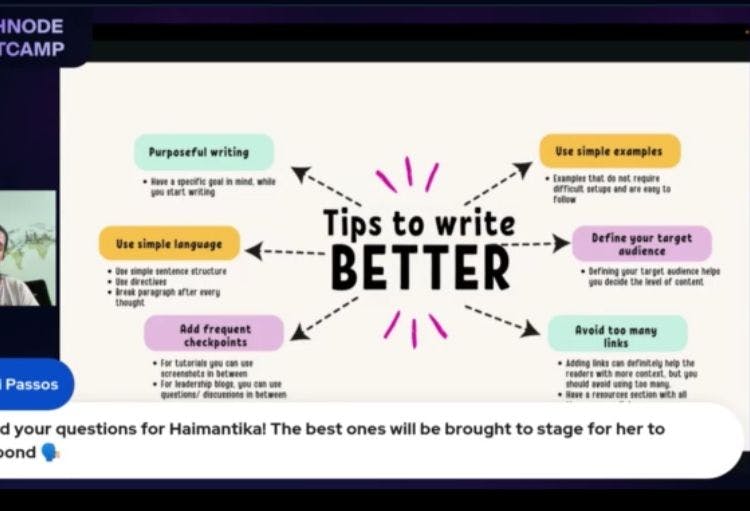
Day 4.

We had four sessions on the fourth day: Lights, Camera, Engagement: Creating Compelling Video Content for Development Communities by Kevin Blanco, How to Document Your Work to Get a Remote Job in Tech! by Deni Khalikov, Benefits of Building in Public for developers by Chibuike Tim Okonkwo, and How to leverage AI as a developer by Muzzammil Yasin.
I'll talk about my two favourite sessions, taken by Tim Okonkwo and Muzzammil Yasin.
Tim Okonkwo talked about what building in public is all about and what it isn't, the benefits and importance of building in public. Here are a few points:
Building in public is sharing transparent "behind the scenes" successes and failures and every step of the progress of a project or product.
It isn't self-promotion; it's about the community. It is not about sharing everything; you can choose what you want. It's not only for extroverts or experts, not only for those with a massive following, and it's definitely not a shortcut to success. It requires consistent efforts and practice.
It has so many benefits. Examples are: It gets you trusted because people are already familiar with you, and they know what you can do. It helps you create lasting relationships with people. It enables you to stay motivated and accountable, and it helps you relate with other developers and reduce the feeling of imposter syndrome.
He also included some examples of what to share in public. Here's a screenshot:
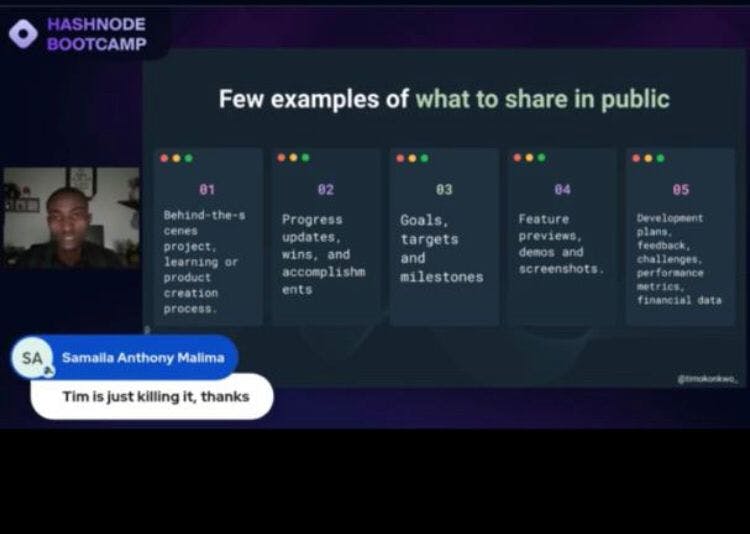
Muzzammil Yasin's session was about How to Leverage AI as a Developer. He mentioned efficiency; AI can automate repetitive tasks such as testing, debugging and optimising code. It is accurate; AI tools can analyse large amounts of data with precision and accuracy. Concerning innovation, AI can help developers identify patterns and make predictions that lead to innovative solutions.
Day 5.
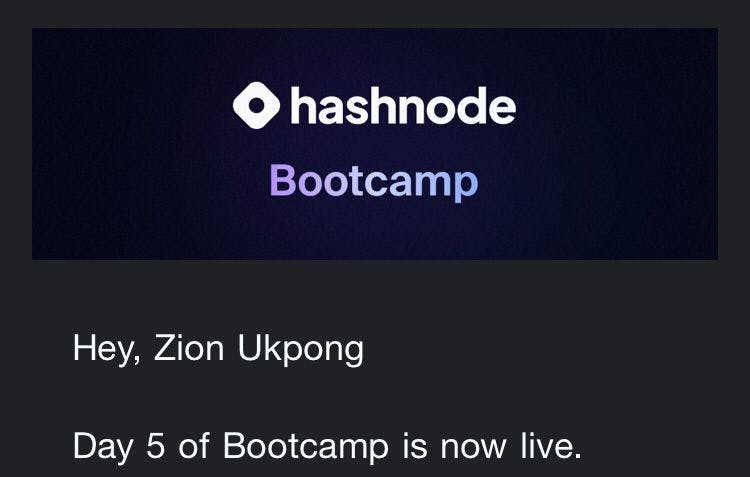
The Bootcamp finally came to an end on Day 5. There were mixed feelings; some didn't want the Bootcamp to end. We had four sessions on this day: Growing Your Online Presence: Leveraging Social Media for Personal Branding by Yuri Santana, Building an AI Headshots app with Leap AI by Alex Schachne, Selling Yourself as a Developer by Ayodele Samuel Adebayo and Adding multi-channel notifications to your app with Knock by Chris Bell.
I particularly liked the session taken by Ayodele Samuel Adebayo, aka 'Unclebigbay' on X(Twitter). He talked about the importance of selling yourself as a developer. Selling yourself in the sense that you showcase your skills, experiences and achievements to the public. Here's a screenshot of his session:
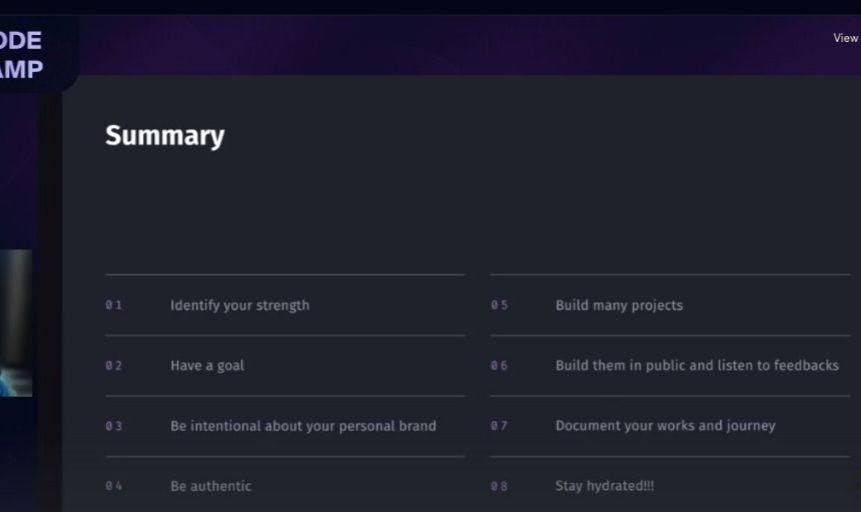
We've come to the end of this article, and I hope you learned one or two things from this article. Feel free to leave a comment telling me what you learned😉I'll reply. See you in my next article!😊
